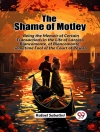In ‘Under Two Flags, ‘ Ouida crafts a compelling tale set against the backdrop of the tumultuous Franco-Prussian War, blending romance, adventure, and high drama. The novel introduces the reader to the lives of its protagonist, the noble-hearted soldier who is torn between loyalty and love, as it navigates the complexities of duty and the perils of war. Ouida employs a vivid, evocative prose style, rich in descriptive imagery and emotional depth, creating a tapestry of characters that illuminate the societal norms and pressures of the Victorian era, particularly regarding issues of nationality, identity, and honor. Ouida, the pseudonym of Maria Louise Ramé, was a prolific Victorian novelist known for her penchant for romanticism and her often controversial stances on social issues. Her experiences in the tumultuous landscapes of Europe and her deep engagement with issues of class and gender undoubtedly informed the passionate and dramatic narratives present in ‘Under Two Flags.’ This novel reflects her engagement with the socio-political discourse of her time, showcasing the dichotomies of love and loyalty in a world rife with conflict. ‘Under Two Flags’ is an essential read for those intrigued by historical fiction interwoven with themes of sacrifice and complex human emotion. Ouida’s masterful storytelling invites readers to lose themselves in a world of romantic escapades and battlefields, making it a timeless exploration of the human spirit’s resilience amid adversity.
Despre autor
Ouida, the pen name for Maria Louise Ramé, was an English novelist born on January 1, 1839, in Bury St. Edmunds, England. She was known for her romantically tinged novels that were often set against opulent backdrops and explored themes of luxury, aristocracy, and excess. Ouida’s flowery, emotive prose and penchant for melodrama secured her a place in the Victorian literary scene. ‘Under Two Flags’ (1867), one of her best-known works, exemplifies her characteristic style and was a pinnacle of success in her literary career. The novel, which tells the story of an aristocratic officer who escapes to Algeria to serve in the French Foreign Legion, was applauded for its adventurous themes and rich characterizations. It has since been adapted into several films and plays, attesting to the enduring appeal of Ouida’s storytelling. Although Ouida’s flamboyant style fell out of fashion with the arrival of literary realism, her work remains significant for its reflection of the ornate aestheticism that defined a segment of 19th-century literature. Ouida’s extravagant lifestyle mirrored the opulence depicted in her novels, and despite earning substantial sums for her writings, she died in poverty on January 25, 1908, in Viareggio, Italy, leaving behind a legacy that intrigues literary scholars to this day.












